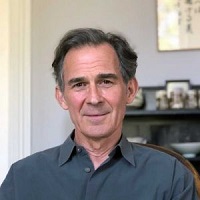
‘I Am Always I’ – Rupert Spira’s New Children’s Book
“A couple of years ago, a simple thought came to me: Why am I only speaking to and writing for adults? Why not try to express this understanding for children? And shortly after this the first title of a poem came to me, I am always I, which is really, if properly understood, the essence of all the great religious and spiritual traditions…”
Rupert Spira is an English teacher of the “direct path”, a method of spiritual self-inquiry through talks and writing, and a notable English studio potter with work in public and private collections. From an early age, Rupert Spira was deeply interested in the nature of reality. At the age of seventeen, he learned to meditate and began studying and practicing the teachings of the classical Advaita Vedanta tradition under the guidance of Dr. Francis Roles and Shantananda Saraswati, the Shankaracharya of the north of India, which he continued for the next twenty years. During this time he immersed himself in the teachings of P. D. Ouspensky, Krishnamurti, Rumi, Ramana Maharshi, Nisargadatta, and Robert Adams, until he met his teacher, Francis Lucille, in 1997. Francis introduced Rupert to the Direct Path teachings of Atmanada Krishna Menon and to Jean Klein and the Tantric tradition of Kashmir Shaivism, and, more importantly, directly indicated to him the true nature of experience.